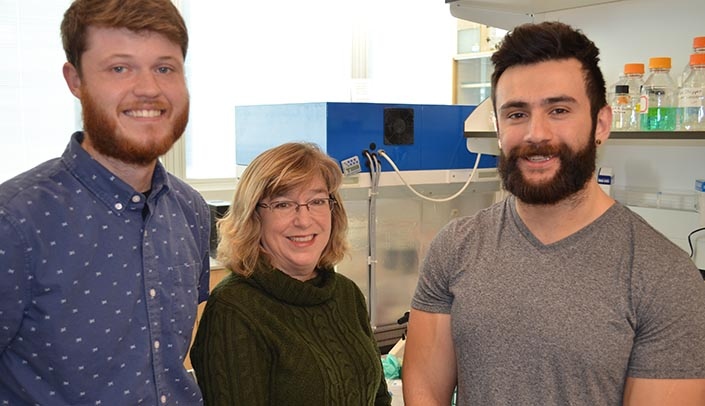On Nov. 27, UNMC heads into space.
Gloria Borgstahl, Ph.D., professor at the Eppley Institute for Research in Cancer and Allied Diseases, and her team will be sending one of their first crystallization experiments to the International Space Station aboard SpaceX rockets.
The experiment is an attempt to better understand how manganese superoxide dismutase rids cells of superoxide.
Never heard of manganese superoxide dismutase (MnSOD or SOD2)? It’s very important to all humans. The protein rids the mitochondria in human cells of superoxide, a harmful chemical species. When there is too much superoxide in the human body, diseases such as cancer, heart disease and neurological degeneration can develop.
While scientists know what MnSOD does, they are still learning how this protein works.
“This experiment is designed to grow large and perfect crystals of MnSOD, something we can’t do on Earth,” said Dr. Borgstahl. “Gravity can cause packing defects in crystals grown on Earth. The microgravity environment aboard the International Space Station is conducive to growing large crystals with very few defects.”
Dr. Borgstahl’s team then will use these crystals to perform neutron crystallography experiments and solve the atomic structure of every atom in the MnSOD protein.
“This will enable us to get a better understanding of how this protein does its job,” she said.
Understanding MnSOD better can be beneficial to astronauts, as well as the general population. For example, astronauts are at risk of exposure to oxidizing radiation, which can damage their DNA.
“If we are able to understand in atomic detail how MnSOD works, a better understanding of how diseases like cancer develop becomes possible,” said Dr. Borgstahl.
This is not Dr. Borgstahl’s first extraterrestrial trial — she performed similar crystallization experiments in the space shuttle era.

Cool work Gloria and crew!